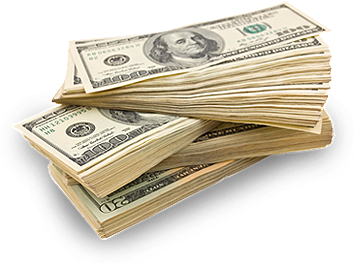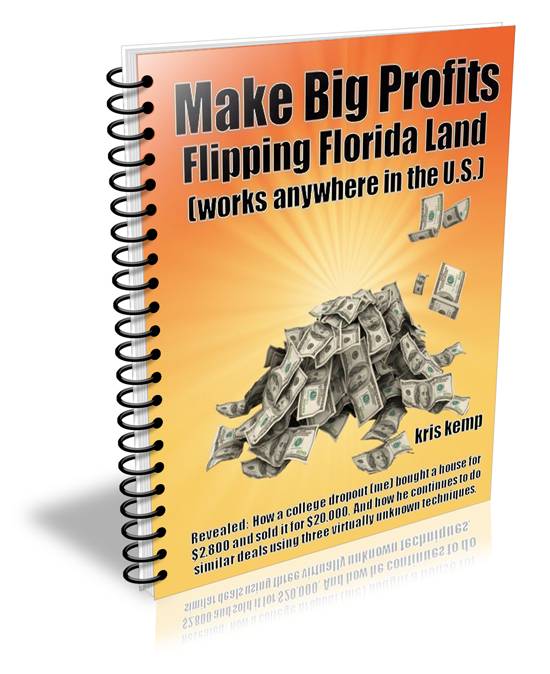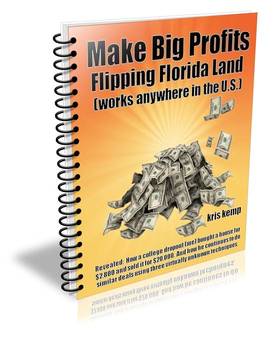Understanding the Difference between Tax Liens and Tax Deeds
Understanding the difference between tax liens and tax deeds
Introduction – Why do we pay property taxes?
For over two hundred years, the United States government has levied taxes against real estate. At the county government level, these taxes fund a number of services, including public schools, law enforcement, hospitals, parks and road construction. When taxes are not paid, the government does not have the operating capitol needed for these programs.
What causes a tax lien sale? What causes a tax deed sale?
As a way of generating income from delinquent (non-paying) taxpayers, county governments offer tax sales at auction to the public. There are two kinds of tax sales: tax lien sales and tax deed sales.

1. Tax Lien Sales
Tax lien sales are those sales in which the the winning bidder purchases the right to earn past due taxes on the property. Here, the buyer’s money is used to pay the taxes on the land. The purchaser is given first lein position on title, ahead of judgements, deeds of trusts, mortgages, subordinate only to State tax liens.
In most cases, tax lien sales begin with a reverse auction format. Usually, the bidding starts at 18% and goes lower, 17, 16, 15, 14, etc.
The winning bidder owns the tax lien. He doesn’t own the property. After two or more years (this number varies depending on the county) the tax lien goes to sale. This is called a tax deed sale. The winning bidder of this sale owns a tax deed, and thus owns the land. After the tax lien is sold at the sale, the holder of the tax lien or tax lien certificate is paid back his winning bid plus the interest.
In other words, if you bid on a tax lien certificate that’s valued at $1,000 and your winning bid is 15%, then, once the tax lien goes to sale, you will get back your $1,000 with 15% interest over two years, amounting to $300 dollars. You’ll have invested $1,000 dollars and your return will be $1,300 dollars.
Compare this to putting $1,000 into a checking account that pays 1.21% interest. Over two years, your interest is $24.20. Even if you put a $1,000 into a one year CD (Certificate of Deposit) at 4.91%, after two years you earn $98.20 in interest.

That’s a far better investment than putting your money in the bank or in a CD. And if there’s no bidder for the tax lien after two years, you end up with the property, which is likely to be worth 4x what you paid for it.
After 2 years, the holder of the tax lien certificate can force a public auction of the property.
What if buys it?
If the debt on the lien is not repaid with interest, the purchaser of the lien may foreclose on the property, and all subordinate liens are dissolved. At this point, the purchaser of the tax lien becomes the owner a tax deed, meaning he owns the property. However, he can only sell the property as a Quit Claim deed. In order to get title insurance and sell this property as a Warranty Deed, he must pay a title company anywhere from $1,500 – $2,500 dollars to “quiet the title”.
As you can see, you can make lots of money investing in tax leins. How much? The more you know, and the more you apply what you know, the more you will earn.
FlipFloridaLand.com FindingFloridaLand.com TheLandDepot.net
Educate yourself and continue to learn how to work smarter, not harder.

“Those that work with their muscle can be replaced by the stronger guy. Work with your brain. You can accumulate knowledge working with your brain. With your muscle, you accumulate wear and tear.”
David Knight, entrepreneur
Tax Deed Sales
At tax deed sales, a property is sold by the county because delinquent (late) taxes have not been paid. The owner and the lien holders have been given ample time and have received proper notification that the property will be sold if due taxes are not satisfied.
Generally, the property is sold for the sum total cost of the delinquent taxes, accrued interest, and the cost of advertising the sale, usually done for 4-6 weeks in a local paper.
At tax deed sales, or tax deed auctions as they’re sometimes called, the winning bidder purchases the deed to a piece of property, becoming the new owner and obtaining all the rights to the property free and clear of liens, mortgages, etc.
(Once the property is transferred via the tax deed sale, all other liens against the property–including mortgages–are wiped out with the exception of government liens. If no action is taken when it becomes seven years old, the tax certificate will expire.)
FlipFloridaLand.com FindingFloridaLand.com TheLandDepot.net
The winning bidders must pay $200 cash immediately after winning the property. The balance needs to be paid that afternoon or by the next day, depending on rules of the county. If the winning bidder fails to pay the balance, they lose the $200 and may lose the right to bid on upcoming auctions in that county.
Different rules, regulations
Each county and state has different rules and regulations for their tax deed sales and their tax lein sales. Visit your local county clerk of court, as they handle both kinds of sales, and ask a lot of questions. This is what I did for months in order to learn how to do this. I literally would spend an entire day at the county courthouse.
Usually, I started visiting the clerk of court, and asking what tax deed sales were coming up within in the next month, and getting a list. After seeing what sales were coming, I would write down the parcel identification numbers of the sales, along with the opening bid amount.
Then, I would walk over the property appraiser’s office. There, I would ask the property appraiser or an assistant, where the property was located, and continue asking questions about learning how to locate the property on a Platt Map, a giant map that uses section-township-range numbers in order to specify specific areas within a county.
Over time, I learned how to use these maps, determine the location of the property, and find out information about the neighborhood in which it was located–what adjacent properties had sold for, its proximity to selling points like grocery stores, bodies of water, parks, schools, hospitals. The property appraiser clerks were were very friendly. I found it odd that there weren’t more people doing this. Occasionally someone would come in and search for a lot, but for the most part, I was the only one there.
Now that you know the difference between tax certificate (tax lein) sales and tax deed sales, let’s move on specific steps required to buy tax deed lands in Florida.
Buy following this procedure, and repeating it, you can acquire land at any tax deed sale throughout the 67 counties of Florida. Within my first year, I purchased 15 properties, in 3 different counties. If I can do this, anyone can.

+ + + + + + + + + + + + + + + + + + + + + + + +
Curious to learn more about Real Estate investing for fun and profit? Discover the simple, powerful, effective strategies you can put into motion to find, buy, and flip properties—land, houses, mobile homes—for fun and profit in Florida or anywhere else in the U.S. I’ve written a few ebooks about this topic and I think you’ll find them highly entertaining and informative, too. Click the links below to find out more:

Ebook Bundle for RE Investors + 2 Entries for your Chance to Win a Florida Camping Lot
http://www.thelanddepot.net/ebook-bundle/

Discover how to find, buy, and flip properties—land, houses, mobile homes—in Florida or anywhere else in the U.S. for fun and profit! If a college dropout (me) can do it, so can you!
www.MakeBigProfitsFlippingFloridaLand.com
Revealed: How a college dropout bought a house for $2,000 and sold it for $20,000.
TheLandDepot.net
FlipFloridaLand.com
MakeBigProfitsFlippingFloridaLand.com

Kris Kemp is a writer, copywriter, musician, traveler, creative entrepreneur and the author of 20+ ebooks. He specializes in copywriting for sales pages, landing pages, squeeze pages, and email marketing campaigns. He has a variety of interests that share the common theme of freedom–health freedom, time freedom, financial freedom, location/travel freedom.
(Feel free to republish this article, as long as you leave the links in place.)
© Kris Kemp, 2020 & beyond






